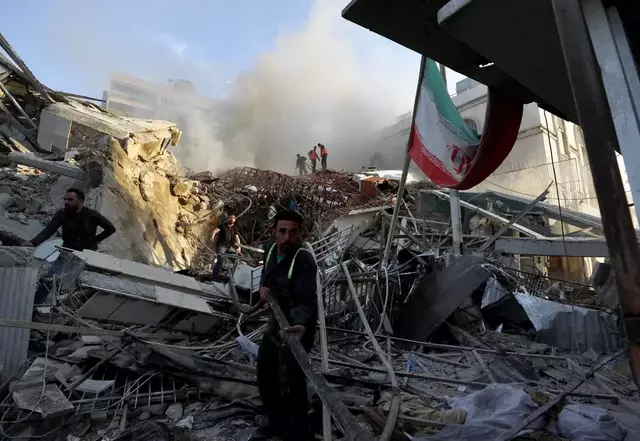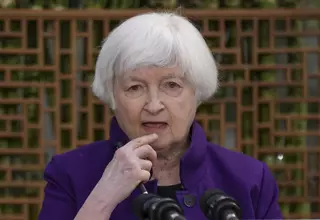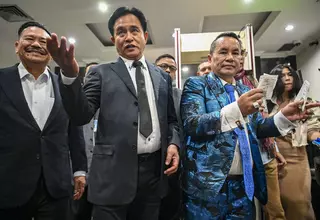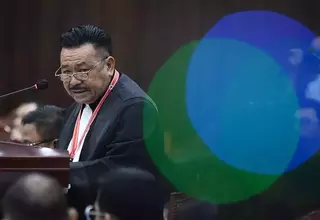China's Xi Threatens Taiwan With Force but Also Seeks Peaceful 'Reunification'
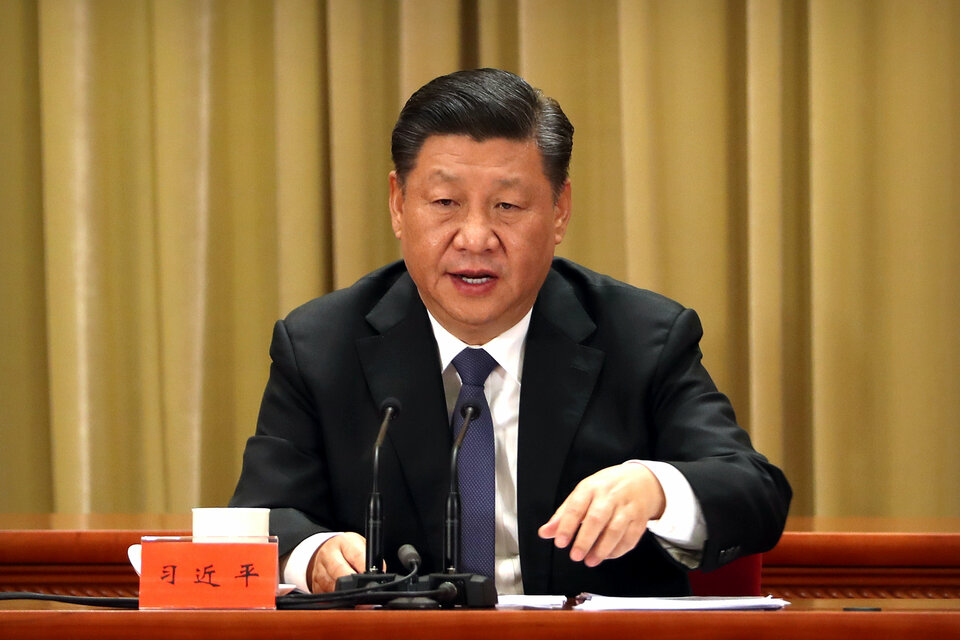
Beijing. China reserves the right to use force to bring Taiwan under its control but will strive to achieve peaceful "reunification" with the self-ruled island that has a bright future under Chinese rule, President Xi Jinping said on Wednesday.
Taiwan is China's most sensitive issue and is claimed by Beijing as its sacred territory. Xi has stepped up pressure on the proudly democratic island since Tsai Ing-wen from the pro-independence Democratic Progressive Party became president in 2016.
Xi has set great personal store in resolving what the Communist Party calls the "Taiwan issue," holding a landmark meeting with then-Taiwanese President Ma Ying-jeou in Singapore in late 2015, just before Tsai was elected.
Xi spoke at Beijing's Great Hall of the People on the 40th anniversary of a key Taiwan policy statement. He said "reunification" must come under a one-China principle that accepts Taiwan as part of China, anathema to supporters of Taiwan independence.
The vast majority of Taiwan's people are clearly aware that independence would lead to a "grave disaster," Xi told an audience that included Taiwanese business people and senior party officials.
"China won't attack Chinese people. We are willing to use the greatest sincerity and expend the greatest hard work to strive for the prospect of peaceful reunification," Xi said.
"We do not promise to renounce the use of force and reserve the option to use all necessary measures" to achieve this goal and prevent Taiwan independence, he said.
This, though, was aimed at foreign forces who seek to interfere and the tiny minority of Taiwan independence forces and their activities, Xi said without elaborating in what was likely a reference to the United States, Taiwan's strongest backer.
There was no immediate reaction from Taiwan's government.
Xi reiterated that China was willing to talk with any party in Taiwan to push the political process – stalled by China since Tsai took office – as long as they accept the "one China" principle.
'Lasting Peace'
He sought to reassure people in Taiwan that there was nothing to fear from Chinese rule, even though most people there have shown no interest in being run by autocratic Beijing."After peaceful reunification, Taiwan will have lasting peace and the people will enjoy good and prosperous lives. With the great motherland's support, Taiwan compatriots' welfare will be even better, their development space will be even greater," Xi said.
Tsai, who says she wants to maintain the status quo with China, said on Tuesday China must use peaceful means to resolve its differences with Taiwan and respect its democratic values.
Beijing has regularly sent military aircraft and ships to circle the island on drills in the past few years and has heaped pressure on the island internationally, including whittling down its few remaining diplomatic allies.
Taiwan is gearing up for presidential elections in a year. Tsai's party suffered stinging losses to the China-friendly Kuomintang in mayoral and local elections in November.
Xi was speaking on the anniversary of the "Message to Compatriots in Taiwan" on Jan. 1, 1979, when China declared an end to what had been routine artillery bombardment of Taiwan-controlled offshore islands and offered to open up communication between the two sides.
However, the offer was rebuffed by Taiwan's then-President Chiang Ching-kuo, who in April that year came out with a "three nos" policy of no contact, no compromise and no negotiation with China.
Chiang only relaxed that in 1987, allowing people in Taiwan to visit China for family reunions. His father, Chiang Kai-shek, fled with defeated Nationalist forces to Taiwan in December 1949 after losing a civil war to the Communists.
Reuters
Tags: Keywords:POPULAR READS
Yellen Says Iran's Actions Could Cause Global 'Economic Spillovers'
Iran's missile attack on Israel early Sunday came in response to what it says was an Israeli strike on Iran's consulate in Syria.Takeaways from Prabowo's Responses to Legal Motion Contesting His Election Win
Part of the argument addresses the claim that the candidacy of Gibran Rakabuming Raka, Prabowo’s running mate, is unlawful.Prabowo Camp Cites ‘Procedural Error’ in Legal Challenge by Rival Candidates
The Constitutional Court's main task is to address alleged discrepancies in vote tallies, which neither of the plaintiffs challenged.Apple Wants to Increase Investments in Vietnam
Vietnam has become more important to Apple as the company seeks to diversify its supply chains away from China.China’s Top Diplomat Wang Yi to Visit Indonesia for Cooperation Talks
Chinese top diplomat Wang Yi will chair a policy coordination meeting aimed at strengthening Indonesia-China cooperation.Popular Tag
Most Popular
